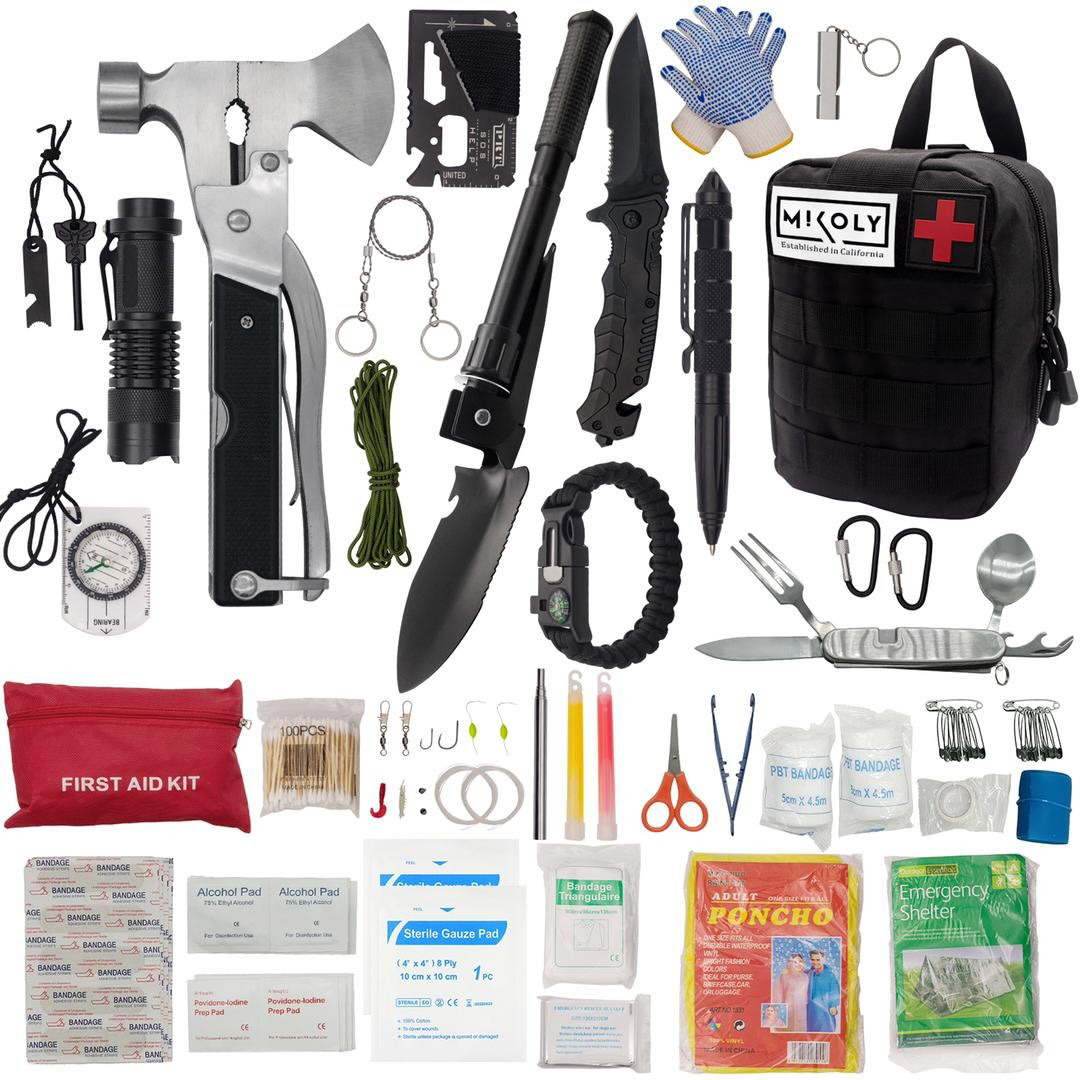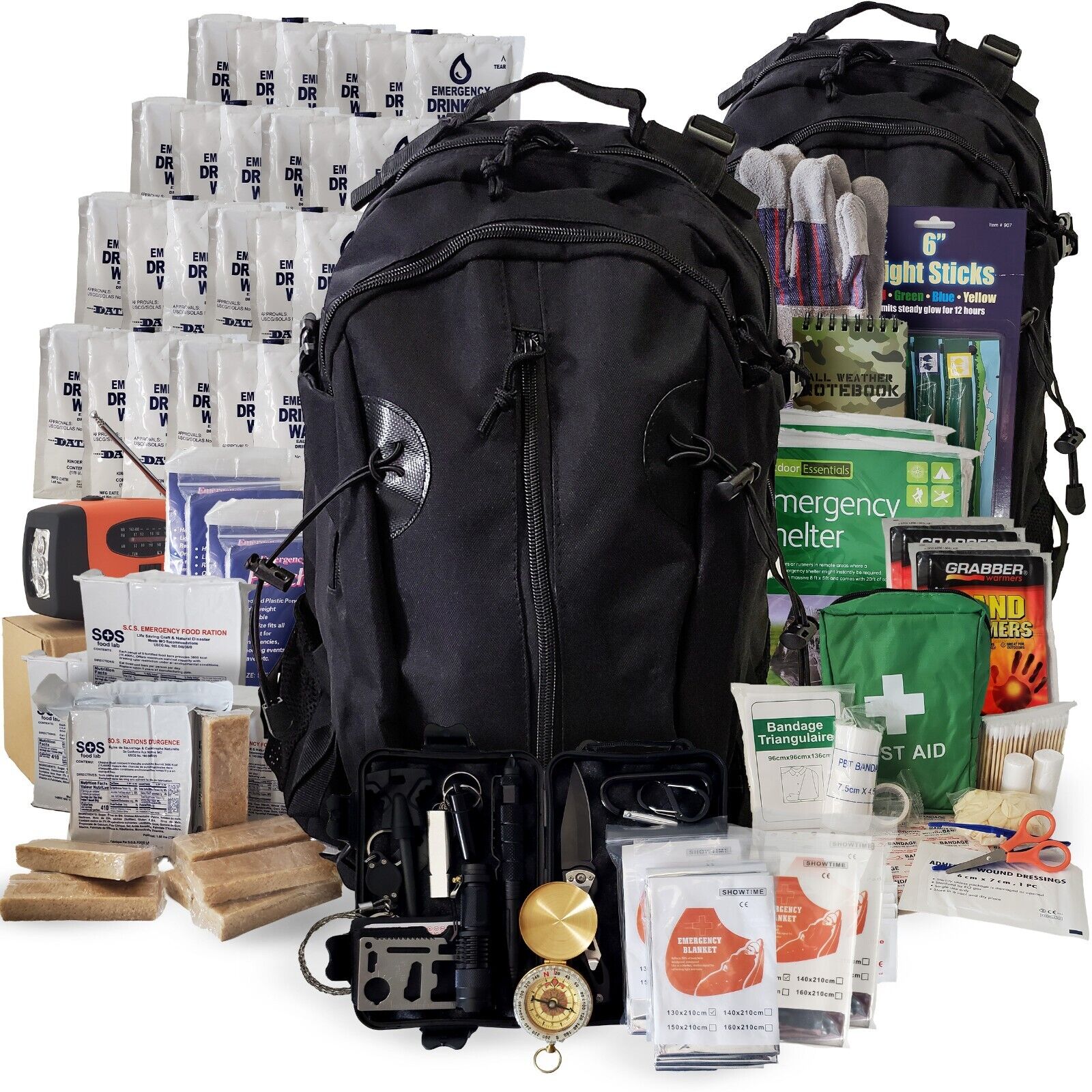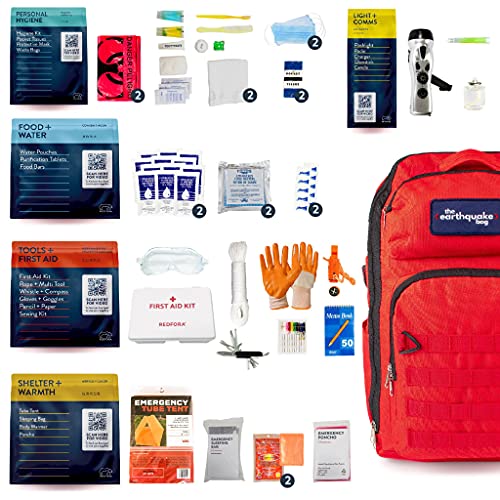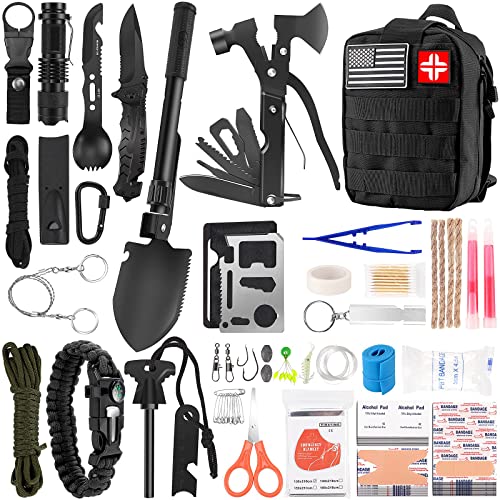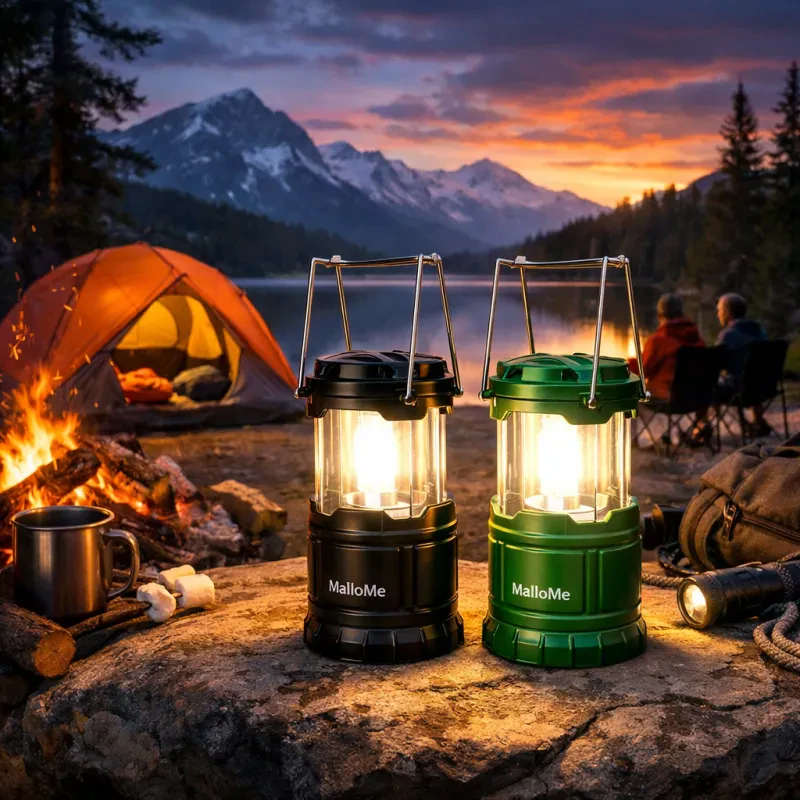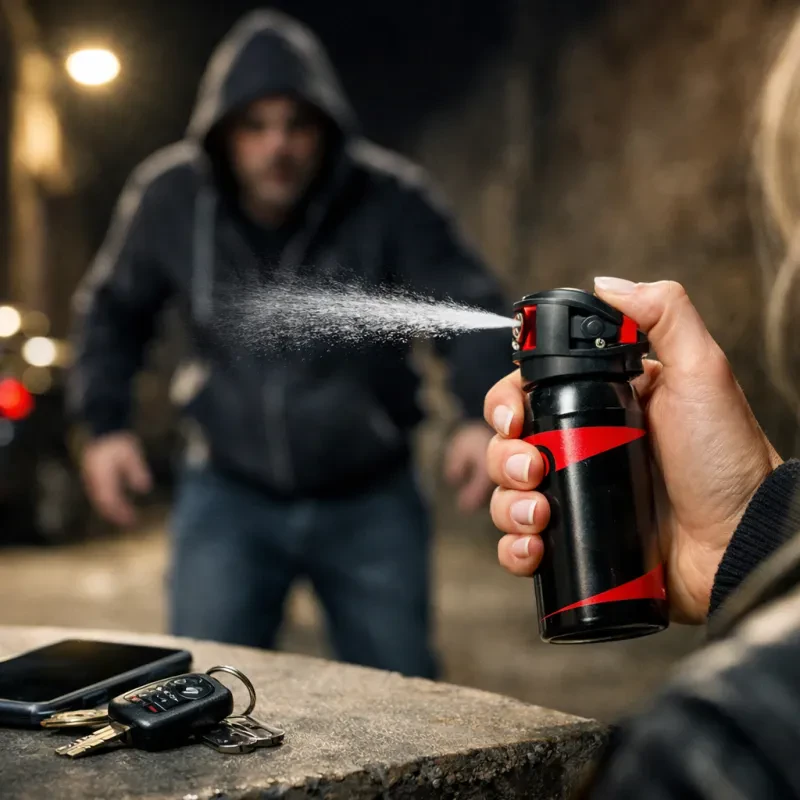In a crisis, desperation changes people. When food, water, and supplies run low, once-friendly neighbors can become threats, and looters will seek out easy targets. If you're well-prepared, the last thing you want is to advertise it.
The key to survival isn't just having supplies—it's making sure no one suspects you do. Whether dealing with random looters or locals who know you, the goal is the same: avoid becoming a target.
The Gray Man Approach: Looking Like Everyone Else
The first rule of avoiding looters and desperate neighbors is to blend in. People notice those who seem better off. You'll attract attention if you look like you have food, security, or a plan. Instead, you want to look like everyone else—struggling, confused, and uncertain.
Dress in a way that doesn't stand out. Avoid wearing tactical gear, high-end outdoor clothing, or anything that suggests preparedness. If people around you are dirty, disheveled, and worn down, matching that appearance can help you avoid looking like someone with resources.
Your home should also look unremarkable. If looters are scouting for targets, a house with boarded-up windows, bright security lights, and evident fortifications might signal that there's something valuable inside.
Instead, making your home look as damaged and abandoned as others in the area can make it less appealing. A few broken items in the yard, an overturned trash can, or even some dirt and debris thrown around can make it appear your home has already been looted.
Controlling Noise and Smell Discipline
Sound and smell are giveaways that you have more than others. Cooking a hot meal in a world where people are starving will send smells through the air, drawing unwanted attention. Using loud generators or playing music makes it evident that someone is inside an abandoned home.
If you're cooking, do it in a way that minimizes smell. Using a smokeless stove, cooking indoors with windows sealed, or preparing food with minimal scents—such as boiling rice or pasta instead of frying meat—reduces the chance of attracting hungry neighbors.
Noise should also be kept to a minimum. If looters or desperate neighbors are scouting for targets, a completely silent house seems empty, but a home with voices, music, or machinery running signals life.
If you need a generator, do it at odd hours and muffle the sound with barriers like blankets, furniture, or enclosed spaces. Avoid loud conversations outside, and keep kids and pets quiet when possible.
Managing Your Supply Appearances
If you've stocked up on food and water while others are struggling, you need to hide the fact that you still have resources. Desperate people notice details. If you're the only one still showering regularly, wearing clean clothes, or looking well-fed, people will assume you have more than they do.
Ration your resources in a way that allows you to maintain your strength without appearing too well off. If your neighbors are losing weight and looking exhausted while you look completely normal, that contrast can make you a target. Wearing slightly oversized clothing, acting fatigued, and occasionally mentioning how hard things have been can help you blend in.
If people see you carrying supplies in and out of your house, they'll remember. Instead of unloading all your gear immediately, move it in small amounts at odd times. Using an unassuming container instead of a bright blue water jug makes it less noticeable if you need to carry water.
Trash is another giveaway. If people see you throwing away food packaging, empty water bottles, or cans, they'll know you have supplies. Burn or bury your trash instead of leaving it where others can see.
Interacting with Neighbors Without Raising Suspicion
If you live in a neighborhood where people know you, avoiding attention is more complicated. People remember who used to talk about prepping, who stocked up on supplies, and who didn't seem worried before the crisis. If you are known for being prepared, some neighbors may come looking for help. Others may assume you have enough to share, even if you don't.
Having a believable story is crucial. If someone asks how you're doing, say things have been harsh. If they ask if you have food, downplay it. Saying something vague like, "We've got a little left, but we're worried about how long it will last," makes it seem like you're in the same situation as everyone else. If you appear too well-off, people may push harder or become resentful.
If a neighbor asks for help, how you handle it depends on the situation. Giving away too much can put you on a list of people to target later while offering nothing can create resentment.
The best approach is controlled generosity. Giving someone a small, unimportant item—like a single can of beans or a cup of rice—can make them feel like you helped while not revealing the full extent of your supplies. The key is making sure they don't assume you have more.
For security, be careful about who you talk to. In times of crisis, people talk, and word spreads fast. If you help one neighbor, they may tell others. If you refuse someone expecting help, they may turn against you. Keeping your interactions neutral and vague prevents people from assuming too much.
Fortifying Without Looking Fortified
If looters are looking for targets, a home that's obviously fortified will either be avoided or seen as a high-value prize. Instead of making your home look like a fortress, subtle reinforcements can keep you safe without drawing attention.
Reinforce your doors and windows from the inside to look normal from the outside. Placing furniture, wooden beams, or extra locks behind doors makes forced entry harder while maintaining the appearance of a weak entryway.
Instead of bright security lights, motion-activated solar lights that briefly flicker on and off can give the illusion of someone inside while conserving power. If possible, having an emergency exit—such as a back window or secondary door—ensures you have a way out if someone breaks in.
Knowing When to Stand Your Ground and When to Stay Invisible
There may come a point when looters or desperate neighbors become aggressive. Knowing when to stay quiet and when to show strength is critical. If a group of looters moves through an area, appearing invisible is the best strategy. Avoid drawing any attention to your home. If they believe no one is inside, they may move on.
However, if you're confronted directly, the situation changes. Sometimes, showing strength is the only way to deter an attack. A group that believes they'll face resistance may decide it's not worth the risk. If you're armed, displaying a weapon casually—not aggressively—can sometimes be enough to make looters reconsider. However, flashing a gun too soon can escalate the situation if they think they can overpower you.
Diplomatic action may be necessary for neighbors who become threats. Someone desperate today might become an enemy tomorrow if they feel slighted. Maintaining neutral relationships, staying on people's good side, and avoiding outright conflict reduce long-term risks.
The Key to Staying Off the Radar
Avoiding looters and desperate neighbors is all about perception. If people think you have nothing, they won't target you. They won't resent you if they assume you're struggling like everyone else. The less attention you draw, the safer you'll be.
By controlling your appearance, movements, and interactions, you can keep your supplies secure and avoid unnecessary confrontations. In a survival situation, it's not just about having resources—it's about making sure no one else knows you do. The best-prepared survivor isn't the one who looks like they have everything. It's the one no one notices at all.
